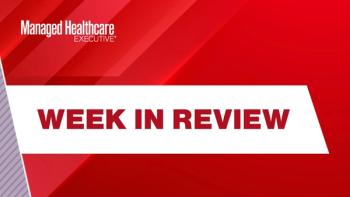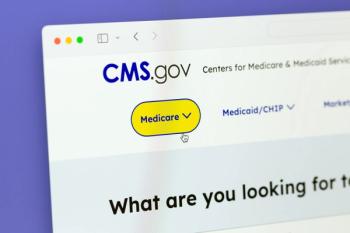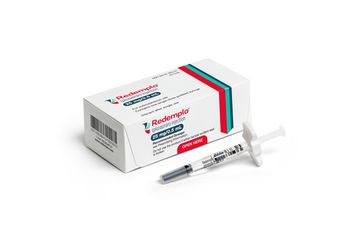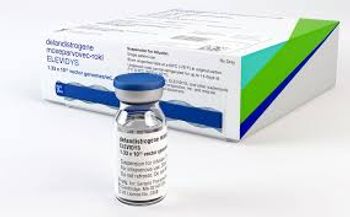
Nicotine dependency is a worldwide health threat, especially for HIV patients, who are more likely to smoke and to have health complications than healthy patients.

Nicotine dependency is a worldwide health threat, especially for HIV patients, who are more likely to smoke and to have health complications than healthy patients.

Beginning in January 2026, Optum Rx is removing reauthorizations for two new drug classes: hormone therapies and knee osteoarthritis injectables.


Here’s what you missed this week on Managed Healthcare Executive.

Public health experts express concern over the CDC's revised vaccine-autism webpage, warning it may fuel mistrust and confusion about vaccine safety.

GLP-1 receptor agonists significantly lower five-year mortality in highly obese colon cancer patients, highlighting potential benefits beyond weight loss and inflammation reduction.

This year marks the fifth consecutive year Independence Blue Shield has received high marks for their Medicare plans.

A new report says complications such as severe encephalitis and Ramsay Hunt Syndrome are among the reasons people with shingles have extended hospital stays.

A pilot program limiting the patient co-pay to $50 could burden Part D plans, depending on whether manufacturers discount their prices — and by how much.

The patch measures distinct electrical patterns, which indicates how easily electrical signals pass through living tissue. Cancerous areas have different electrical properties than healthy skin.

The CDC's recent update on vaccines and autism sparks confusion, raising concerns about public trust and the implications for vaccine safety.

Eylea HD offers two dosing options for patients with retinal vein occlusion: 8-week and 4-week dosing intervals.

The results of a new Kinsey Institute study show that masturbation eased menopause symptoms for a significant number of women, yet few clinicians discuss it, despite strong interest from patients.

The American Gastroenterological Association has released updated guidelines for treating moderate-to-severe Crohn’s disease, outlining 16 evidence-based recommendations that prioritize advanced therapies and reflect new medication approvals since 2021.

Promising new medications for resistant gonorrhea, such as zoliflodacin and gepotidacin, are waiting for FDA approval, and they offer hope for effective treatment options.

Viral infections such as COVID-19, HIV and hepatitis C significantly elevate cardiovascular disease risks, highlighting the importance of vaccination and preventive strategies.

Mark Nestor reveals groundbreaking insights on botulinum toxin's evolving science, enhancing its efficacy and expanding its medical applications in dermatology.

Health benefit costs for employees are projected to rise 6.7% in 2026—the largest increase in 15 years—as employers grapple with escalating prescription drug prices, growing GLP-1 coverage and a broader push to offer diverse, cost-saving health plan options amid mounting affordability concerns.

Tumor infiltrating lymphocyte (TIL) therapy uses immune cells harvested directly from a patient’s tumor.

Researchers used a data textural analysis to quantify changes seen on high-resolution CT scans.

Discover how botulinum toxin injections in the glabella affect brain function, enhancing mood by altering emotional feedback from frowning.

The Infectious Diseases Society of America updates flu and RSV vaccine guidelines, emphasizing safety for immunocompromised patients during respiratory virus season.

Medicaid expansion increased overall PrEP access in the U.S., but significant racial, gender and structural disparities persist, limiting equitable HIV prevention despite rising national uptake.

Redemplo has been approved to treat adults with familial chylomicronemia syndrome. The therapy will be available by the end of the year and will have an annual wholesale acquisition cost of $60,000.

A new study suggests epigenetic changes at Type 1 diabetes susceptibility genes may explain the risk profile of children born of parents with the disease.

The findings in a new study published in Health Affairs suggest that Semglee’s interchangeability status may have partially increased adoption by supporting improved formulary coverage.


In this latest episode of his “Conversations With Perry and Friends” podcast, Perry Cohen, Pharm.D., a member of the Managed Healthcare Executive editorial advisory board, spoke with C. Daniels Mullins, Ph.D., a professor of practice, sciences, and health outcomes research at the University of Maryland School of Pharmacy in Baltimore and a pioneer in incorporating the patient point of view into research and healthcare.

Sandoz’s Tyruko (natalizumab), the only FDA approved natalizumab biosimilar for adults with relapsing multiple sclerosis and Crohn’s disease, is now available by prescription in the United States under a restricted-distribution program because of the drug’s risk of progressive multifocal leukoencephalopathy.

In addition, Elevidys’s indication for non-patients has been removed, and the gene is now indicated only to treat ambulatory patients four years of age and older with Duchenne muscular dystrophy.